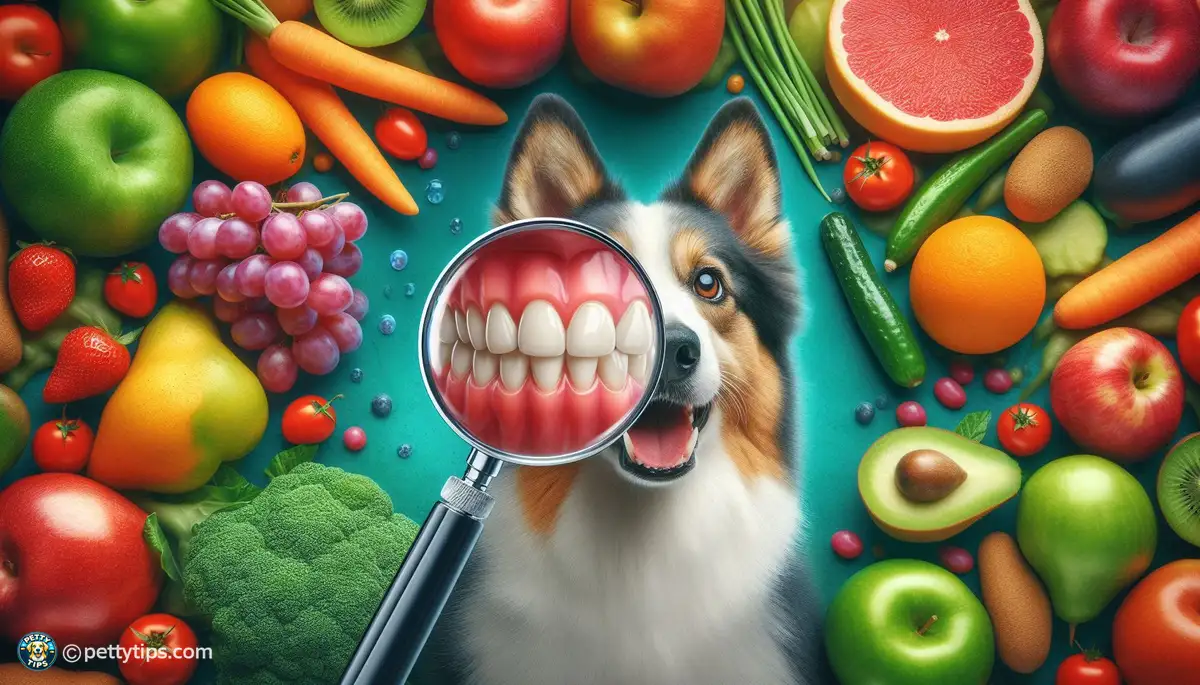- Home
- Pet Nutrition
- Unveiling the Essentials: Nutrients Vital for Your Pets Dental Health
Unveiling the Essentials: Nutrients Vital for Your Pets Dental Health

The Role of Nutrients in Pet Dental Health
Nutrition plays a fundamental role in maintaining overall health, including dental wellness, in our beloved pets. Just as in humans, a balanced diet directly impacts the condition of teeth and gums in animals. The right nutrients contribute to strong teeth, healthy gums, and overall oral hygiene. Let's delve deeper into the specific nutrients that are crucial for your pet's dental health.
pet owners often overlook the importance of proper nutrition in maintaining their furry friend's oral health. However, a deficiency in key nutrients can lead to various dental issues, including tooth decay, gum disease, and bad breath. By understanding the role of nutrients in dental health, pet owners can make informed decisions about their pet's diet and ensure they receive the necessary nourishment for optimal oral hygiene.
Ensuring that your pet receives a balanced diet rich in essential nutrients is crucial for their overall health, including their dental wellness. Just like humans, pets require a variety of vitamins and minerals to support their bodily functions, including those related to oral health. By providing your pet with a diet tailored to their specific needs, you can help prevent dental issues and promote a lifetime of healthy smiles.
Essential Nutrients for Dental Health
Calcium and Phosphorus: Building Blocks of Strong Teeth
Calcium and phosphorus are two essential minerals that play a crucial role in maintaining strong and healthy teeth in pets. Calcium is the primary component of tooth enamel, the protective outer layer of the teeth, while phosphorus works alongside calcium to support tooth structure and function. Together, these minerals help prevent tooth decay and promote overall dental health in pets.
A diet deficient in calcium and phosphorus can lead to weakened tooth enamel, making pets more susceptible to dental problems such as cavities and tooth loss. To ensure your pet receives an adequate intake of these essential minerals, it's essential to provide them with a balanced diet that includes sources of calcium and phosphorus, such as meat, dairy products, and certain vegetables.
Supplementation may be necessary for pets with specific dietary requirements or health conditions that affect their ability to absorb calcium and phosphorus from food. However, it's essential to consult with a veterinarian before adding any supplements to your pet's diet, as excess levels of these minerals can also have adverse effects on their health.
Vitamin C: Supporting Gum Health
Vitamin C, also known as ascorbic acid, plays a vital role in supporting gum health and preventing periodontal disease in pets. This essential vitamin is involved in collagen synthesis, a process crucial for maintaining the integrity of the gums and connective tissues that hold teeth in place. Adequate intake of vitamin C can help prevent gum inflammation, bleeding, and other signs of periodontal disease in pets.
Pets that consume diets lacking in vitamin C may experience gum problems such as gingivitis and periodontitis, which can lead to discomfort, pain, and tooth loss if left untreated. To ensure your pet's oral health, it's important to include sources of vitamin C in their diet, such as fruits and vegetables. However, it's essential to note that unlike humans, most animals can synthesize their own vitamin C, so dietary requirements may vary depending on species and individual needs.
Supplementation with vitamin C may be beneficial for pets with specific health conditions that increase their risk of gum disease or those that require additional support for their immune system. However, it's crucial to consult with a veterinarian before administering any supplements to determine the appropriate dosage and ensure they are safe for your pet.
Vitamin D: Facilitating Calcium Absorption
Vitamin D plays a critical role in facilitating the absorption of calcium and phosphorus from the intestines, which is essential for maintaining strong and healthy teeth and bones in pets. Without an adequate intake of vitamin D, pets may experience difficulties in utilizing calcium and phosphorus, leading to weakened teeth and an increased risk of dental problems.
Exposure to sunlight is the primary source of vitamin D for most animals, as their skin can synthesize this essential vitamin when exposed to ultraviolet (UV) radiation. However, factors such as indoor confinement, geographic location, and skin pigmentation can affect the amount of vitamin D synthesized by pets. Therefore, it's important to ensure that pets receive sufficient exposure to sunlight or consume diets fortified with vitamin D to meet their nutritional needs.
In addition to supporting dental health, vitamin D also plays a crucial role in maintaining overall immune function and musculoskeletal health in pets. Deficiencies in vitamin D can lead to a range of health problems, including weakened immune response, bone abnormalities, and increased susceptibility to infections. Therefore, it's essential to include sources of vitamin D in your pet's diet and consult with a veterinarian if supplementation is necessary to address any deficiencies.
Conclusion: Nourishing Your Pet's Dental Health
Embracing a Holistic Approach to Pet Wellness
In conclusion, proper nutrition plays a vital role in maintaining your pet's dental health and overall well-being. By providing a balanced diet rich in essential nutrients such as calcium, phosphorus, vitamin C, and vitamin D, you can help prevent dental issues and promote a lifetime of healthy smiles for your furry friend. Additionally, regular dental check-ups and professional cleanings are essential for identifying and addressing any potential problems before they escalate.
As responsible pet owners, it's our duty to prioritize our pet's oral health by paying attention to their diet and providing them with the nutrients they need to thrive. By embracing a holistic approach to pet wellness that includes proper nutrition, regular exercise, and preventive care, we can ensure that our furry companions lead happy, healthy, and fulfilling lives for years to come. Remember, a healthy pet is a happy pet!
